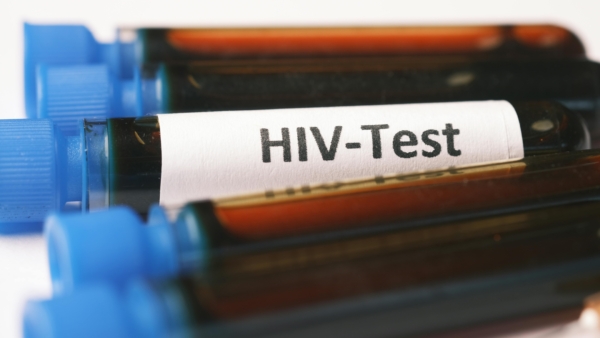
Experts call for modernized HIV education and decriminalization in Oklahoma
Experts said they hope to finally get legislation across the finish line to improve how students are taught about HIV and to decriminalize exposure.
Oklahoma’s current guidelines for HIV education were passed in 1987 and have not been updated since, but previous efforts to modernize them have fallen short amid misinformation and difficulties dispelling outdated stigmas surrounding the virus.
“A lot has happened since 1987 in the field of HIV that our education mandate just doesn’t include,” said Sara Raines, a sexual health educator with the Oklahoma City-County Health Department. “So not only was it written in a way that’s outdated, but it just leaves a lot out. … I think, especially when you look at Oklahoma’s current HIV epidemic, public school education is a great way that we can start making progress in other areas.”
Raines said Oklahoma is one of seven states the federal government has identified as having disproportionately high HIV diagnoses in rural areas. She also said most new HIV diagnoses in Oklahoma in 2022 were for people under the age of 34, which is on par with national trends.
“We tend to think of HIV being something that happens in other places, but it’s here as well,” she said. “Something that is unique about Oklahoma’s epidemic is that we have a pretty disproportionate rural burden of HIV.”
Oklahoma is also one of 34 states that have laws criminalizing HIV exposure, according to the Centers for Disease Control and Prevention.
Nicole McAfee, executive director of Freedom Oklahoma, said these laws are “not rooted in science.” Freedom Oklahoma is a group advocating for LGBTQ+ Oklahomans.
With modern advancements in medicine, people living with HIV who are receiving treatment can have “an undetectable viral load” which means they cannot transmit HIV sexually. Oklahoma’s state statute does not reflect these advancements.
McAfee, who uses they/them pronouns, said efforts to decriminalize the virus usually come with two parts: repealing criminalization in statute and offering a pathway for those who have been incarcerated through the law, potentially through resentencing.
“I think as we think about how we address the harms of criminalization,” they said. “It’s been really important for us, rooted in work we’re doing with the community, that in addition to repealing and thinking about how the state goes forward, we also think about steps to begin to repair harm done to communities who’ve been disproportionately targeted by criminalization.”
State law requires prevention education on HIV and AIDS, but the language of the statute is outdated, Raines said.
The state Legislature has seen few efforts to update the curriculum standards, but most have been unsuccessful. In 2019, the Legislature sent a bill to the governor’s desk that would have modernized HIV education but Gov. Kevin Stitt vetoed it.
Since then, McAfee said, the state has seen efforts to lower standards for sexual education in general, or to remove it completely. When it comes to HIV education, McAfee said some lawmakers and law enforcement have demonstrated hesitation for change because of misinformation.
“I hope that as we continue to create spaces like this and folks continue to see the harm that we will see more legislators join in introducing bills specifically to address HIV modernization,” they said.
Freedom Oklahoma will be hosting an informational session at the Oklahoma Capitol Wednesday. McAfee said it’s intended to “share information and continue trying to educate folks, both in the Legislature and in the general public, about why HIV modernization is a priority.”
Sens. Julia Kirt, D-Oklahoma City, and Carri Hicks, D-Oklahoma City, are set to attend the session.








